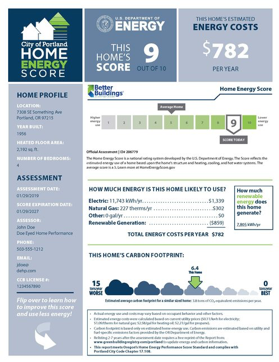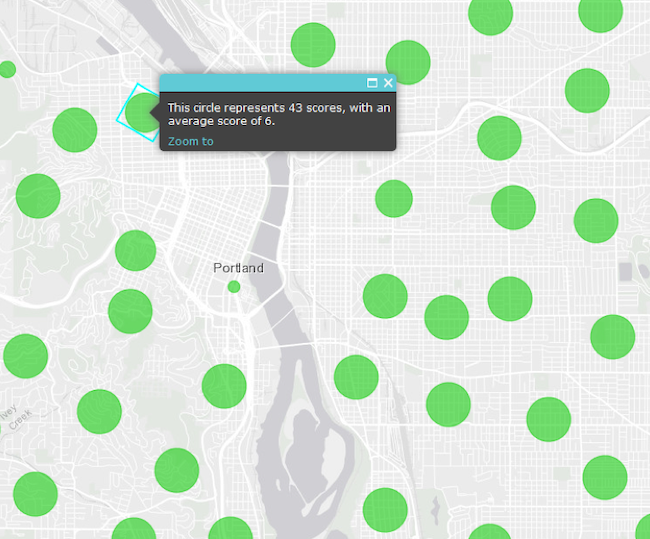Ever wonder how much a home’s utility bills will cost before you buy it? Portland, Oregon, has a cutting-edge policy that gives homebuyers such information, enabling them to consider energy efficiency when buying a home, just as many consumers do when shopping for a car. Other cities are looking at similar programs.
Portland is one of a few US cities to require home sellers to disclose energy information to buyers and is the first US city to require home sellers to receive and disclose a Home Energy Score in real estate listings. This score, developed by the US Department of Energy, explains how homes perform compared to others in the United States. To receive a score, homeowners must hire a certified assessor to perform an energy audit that scores their home on a scale of 1 to 10.
Last year, the policy’s first, the city scored 10,000 homes and found an average score of 4.6, slightly below the US average of 5.0. Many homes in Portland were built in the early 1900s, long before building codes set efficiency requirements. These older homes often receive low scores, because they have little insulation, old windows, and inefficient HVAC systems. But they also have the most to gain; many can improve their performance 20-30% with cost-effective measures.
Other US cities are implementing or considering similar policies to help their residents better value energy efficiency. Since 2009, Austin, Texas, requires homes that are 10 or more years old to receive an energy audit and disclose it when listing the property. In 2015, Berkeley, California, began requiring sellers to receive a home energy score and disclose it to the buyer at or shortly after the time of sale. Montgomery County, Maryland, and Chicago have requirements to disclose utility bills to home purchasers; Chicago also encourages (but does not require) including this information in listings. This February, Minneapolis passed a law to require a rating at time of listing as well as a disclosure policy targeting rental properties.
Look for the home label
By requiring home sellers to disclose energy scores, Portland is bringing more transparency and energy awareness to the market. It has developed tools, notably the home energy score label (see below), to help people quickly and easily compare homes.
Buyers can also find home energy scores through the green building registry map tool, seen below. They can plug in an address to look up a home’s score and also see how other homes in the neighborhood perform.
The city aims to nudge home buyers to consider energy efficiency alongside other features such as floor plans or number of bedrooms. Similar labels have successfully helped consumers value efficiency. For example, ACEEE research on the impact of fuel economy labels shows that car buyers now consider efficiency just as important as price, reliability, and safety. Research in Europe finds that higher home energy ratings result in higher sales prices. And research in Chicago shows that listings that disclose energy use sell more quickly.
Some owners are already using their home energy reports to make improvements. One homeowner, despite having a high-efficiency furnace and new windows, received the lowest score of 1. The report revealed that her home had little attic or wall insulation and an inefficient water heater, which explained why she felt her living room would get hotter throughout the summer. Working with a contractor, she improved her home’s insulation and replaced her old water heater for less than $10,000. Now her home has a score of 7.
Portland wants to encourage more home improvements. New buyers are a particularly important target, because they often make improvements within the first two years of moving, spending twice as much on home repairs as non-movers. The city estimates the average homeowner could save $303 per year by making the improvements recommended in the HES report. This can put a significant dent in a homeowner’s yearly costs, as the average household pays almost $2,000 a year for energy, underscoring the value of efficiency upgrades.
More evaluation needed
While rating and disclosure policies have been extensively evaluated in Europe (see here), US evaluations have been much more limited. Now that Portland has 10,000 ratings, we recommend conducting an evaluation to assess how the ratings affect time on market, selling price, and home energy upgrades. Additional evaluation data will be useful for refining these programs and providing data additional cities can use to assess whether they should also require home energy disclosure.



